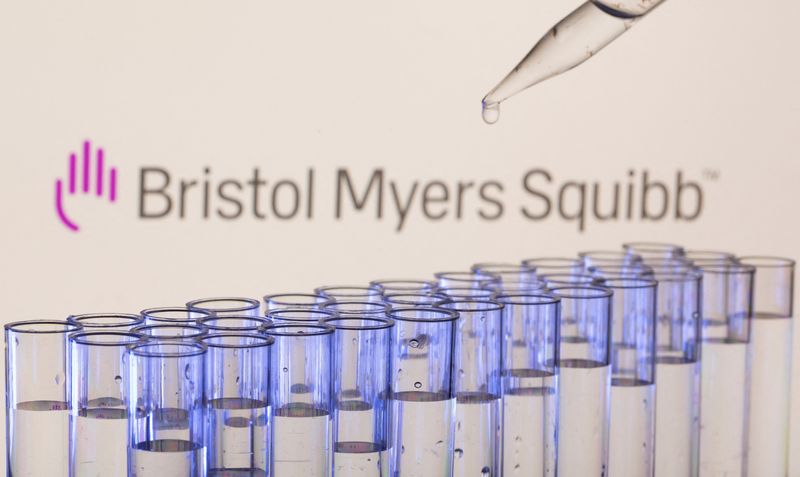By Sneha S K and Sriparna Roy
(Reuters) -The U.S. Food and Drug Administration said on Friday that it has approved an injectable version of Bristol Myers (NYSE:BMY) Squibb's blockbuster cancer drug, Opdivo.
Opdivo is part of a class of drugs called PD-1 inhibitors, which enhance the immune system's ability to fight cancer by removing its natural brakes.
Like other PD-1 drugs such as Merck (NS:PROR)'s Keytruda, it was previously available through infusions and patients received it via an intravenous drip in a health office.
The new injectable form is expected to be more convenient for patients and could help shield the company from erosion of sales when the patent for the intravenous version expires later this decade.
The injection, branded as Opdivo Qvantig, has been approved to treat all previously approved adult, solid tumor indications, either on its own, as maintenance therapy or in combination with chemotherapy.
The drug will be available in early January, and will be priced at parity with the list price of the IV version, Adam Lenkowsky, Bristol's chief commercialization officer, told Reuters ahead of the approval.
The IV version of the drug has a list price of $7,635 per infusion for two weeks for the lower dose and $15,269 per infusion for four weeks for the higher 480-milligram dose.
The approval was based on data from a late-stage study, which showed that the subcutaneous form of the drug was not inferior to the intravenous formulation in patients with advanced kidney cancer who have received prior systemic therapy.

The drugmaker is relying on newer treatments like Opdivo Qvantig to drive growth as patents on older drugs, such as cancer drug Revlimid and blood thinner Eliquis, expire later this decade.
Opdivo Qvantig was co-formulated with Halozyme Therapeutics (NASDAQ:HALO)' drug delivery technology, which helps reduce treatment administration from hours-long IV infusions to subcutaneous injections delivered in minutes.